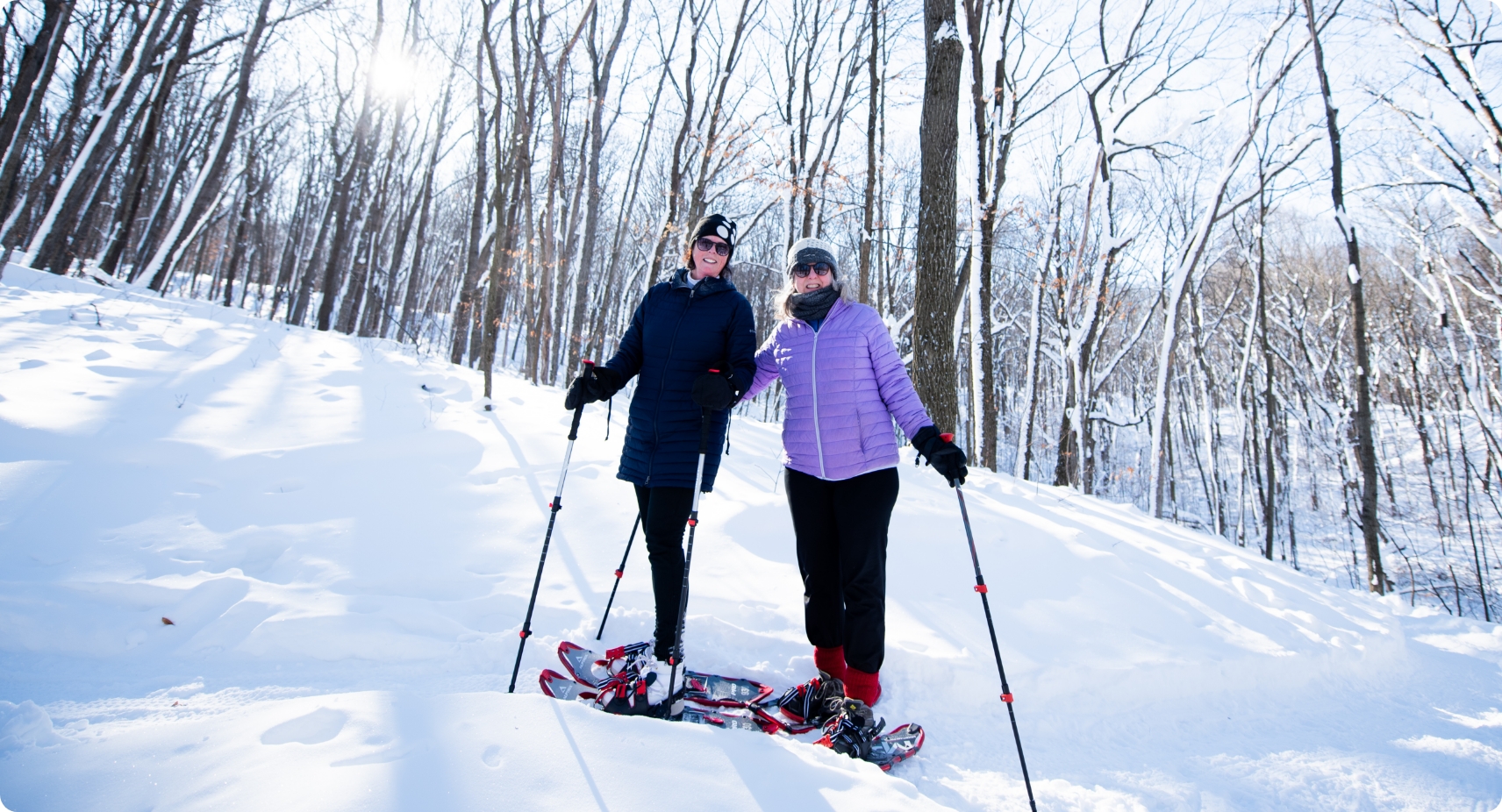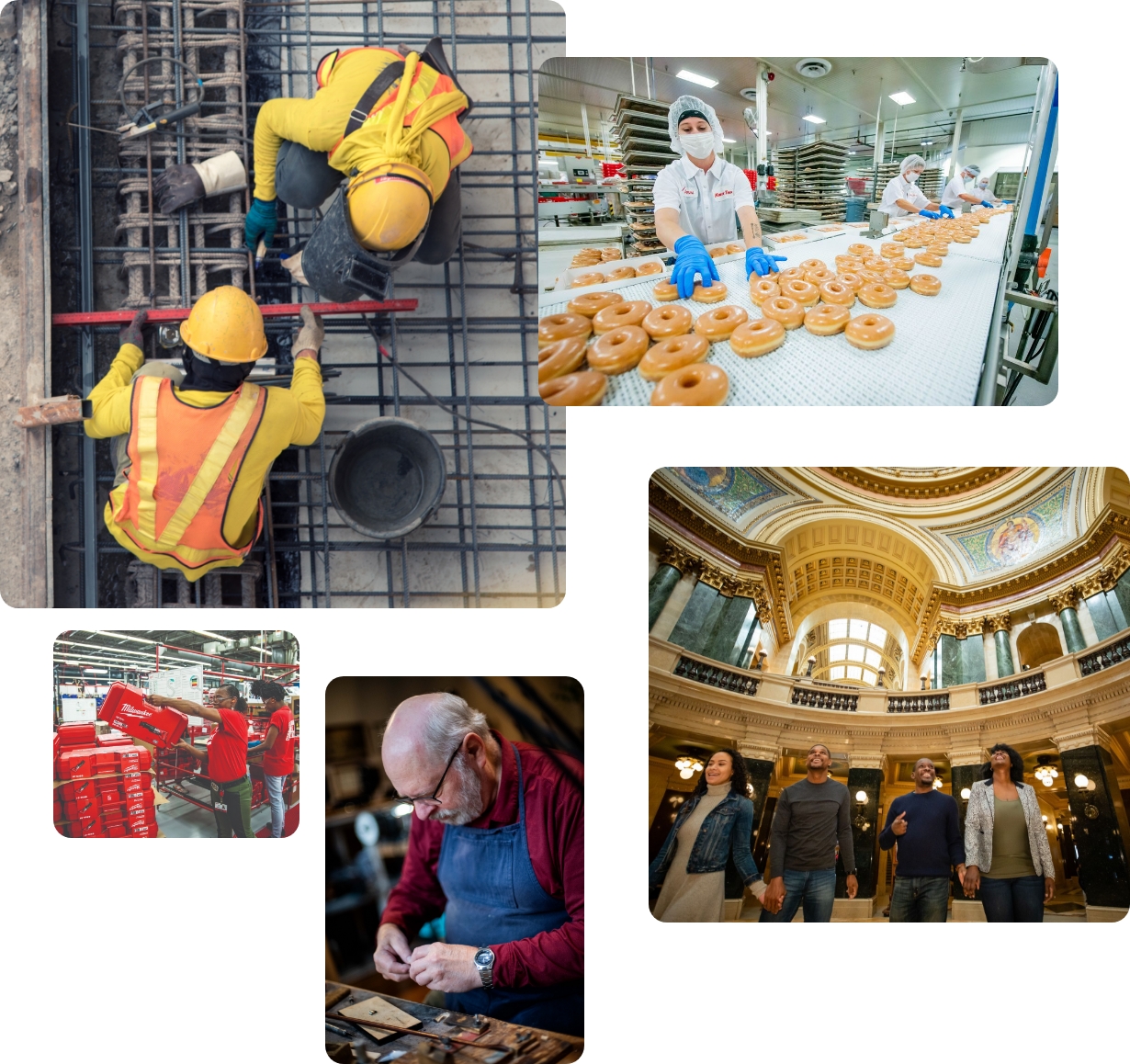
Let’s strive for a better Wisconsin, together.
By now, you may sense something different about Wisconsin and WEDC. Here, economic development is more than setting your business up for success; it’s giving your workforce the support they need to be successful, too. As we see it, if everyone in Wisconsin has the opportunity to thrive and to live their best lives, our overall economy will prosper. We call it economic well-being, and it’s what WEDC strives to achieve every day in Wisconsin. But we all have a role in realizing our state’s full economic potential. Whether you’re a business leader, a local official, a state agency, or a small town—whether you’re in a rural or an urban environment—you can contribute your power and resources to ensure the success of our state through overall economic well-being.
Economic well-being depends on financial stability, access to education, available health care, a sound environment, and a strong infrastructure. It’s these interconnected elements that can move us all—individuals, communities, and businesses—forward. Let’s take a look at each aspect of economic well-being.
Fuel Financial Stability
Financial stability represents different things to different people. It could mean a job, a house, a savings account, just being able to afford an unexpected expense—or all of the above. Regardless of how we each define it, financial stability is a cornerstone of economic well-being. How can we help to fuel it?
- Offer training and reskilling programs to help get people get back to work.
- Create affordable housing in both urban and rural communities.
- Support the small businesses that employ so many Wisconsinites.
- Expand financial literacy and education.
All these elements work together to strengthen the financial stability of our families, build intergenerational wealth, fuel entrepreneurship, and encourage future innovation.
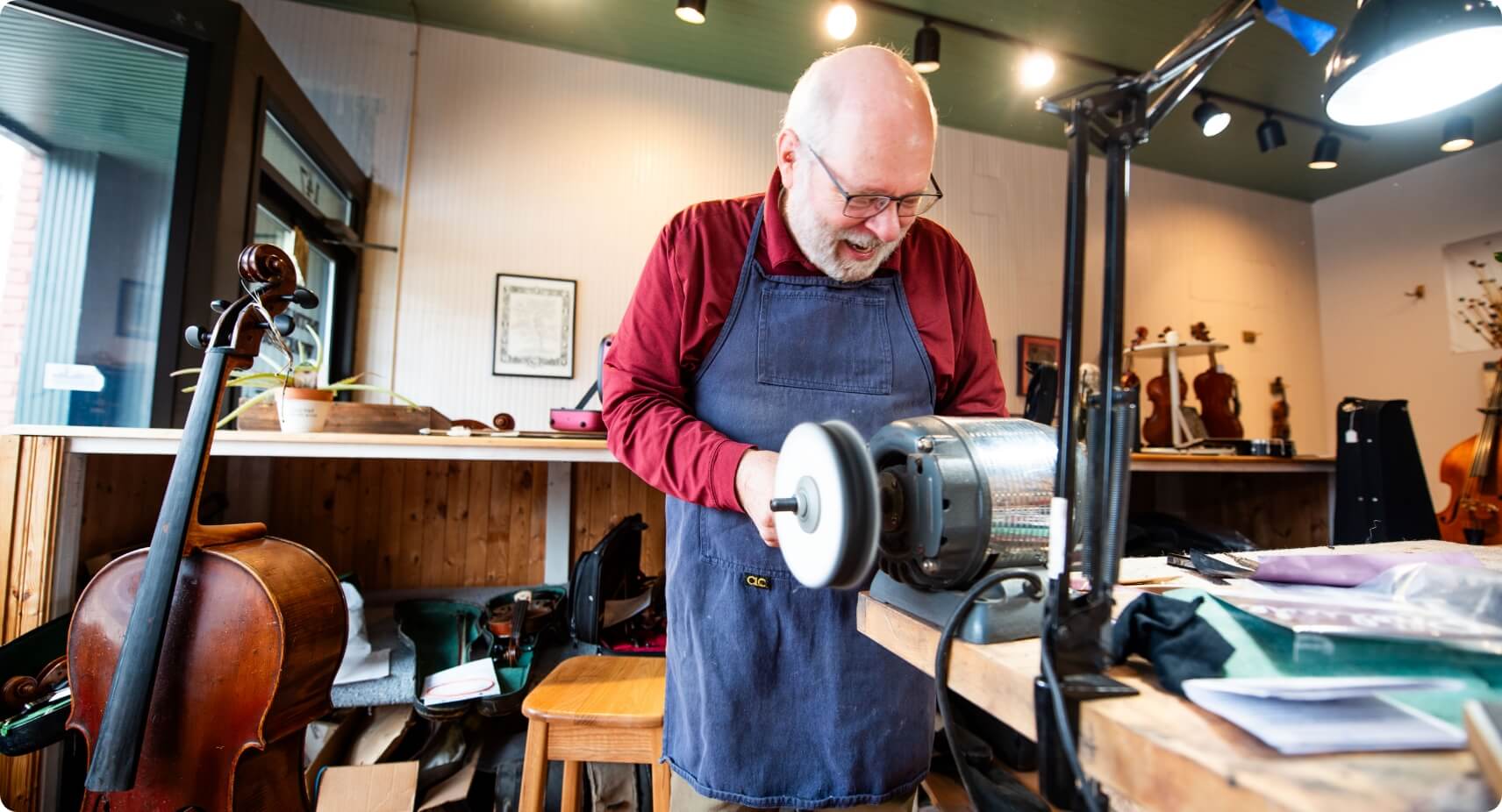
Educate Everyone
Better education is linked to more job opportunities, increased wages, better health and housing, and improved connections to the community. How can we ensure that everyone has access to a quality education?
- Make sure our colleges, universities, and technical colleges have the capacity to offer education to anyone who wants it.
- Offer job training and assistance to people trying to reenter the workforce.
- Close the achievement gaps between Black and Latino K-12 students and their white and Asian peers.
- Ensure reliable high-speed broadband access in all corners of the state.
A well-educated and well-trained workforce makes it easier for businesses of all sizes to succeed, strengthens our core industries, and allows us to innovate for the future.
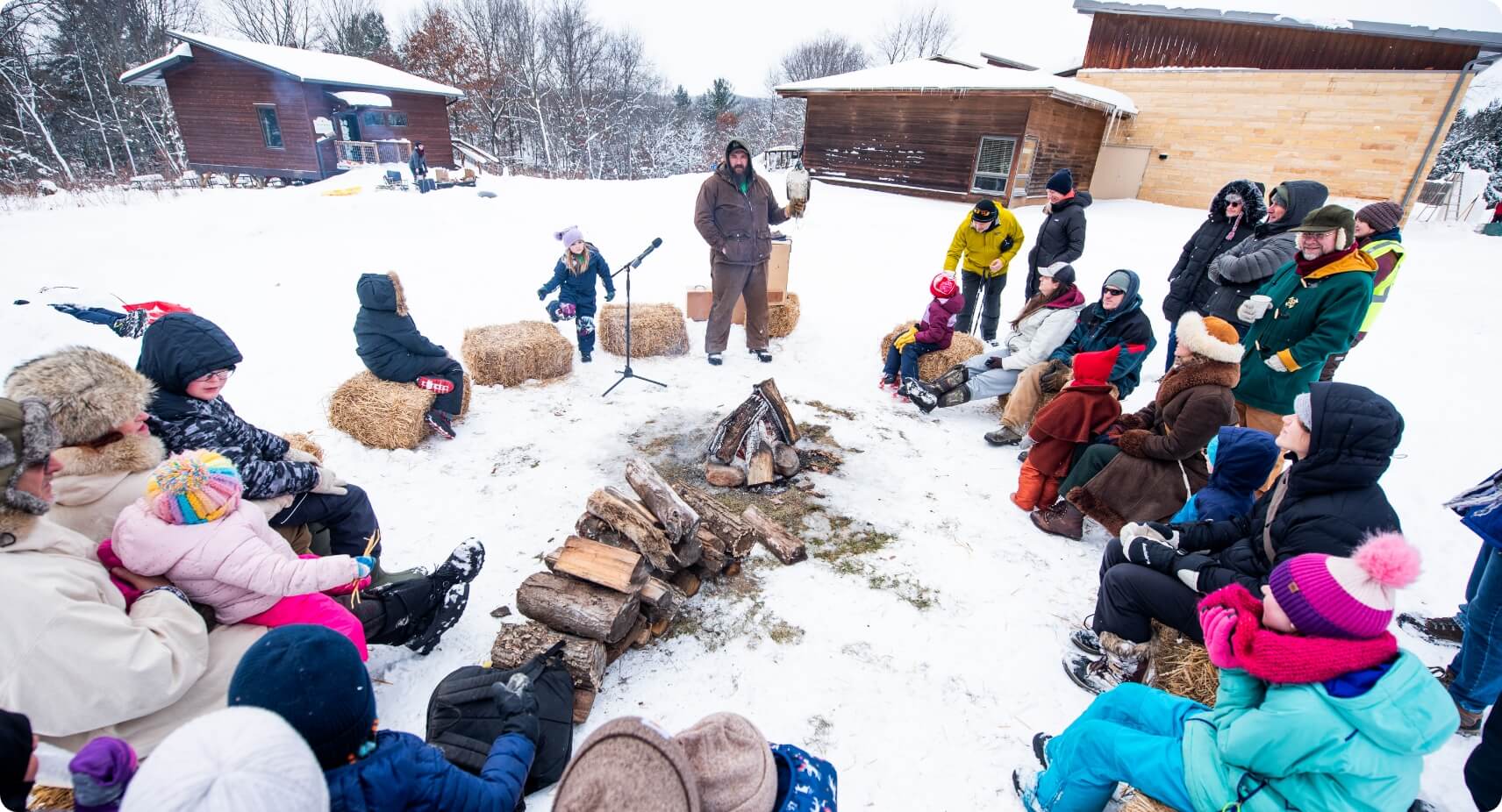
Support Healthy Living
Our state’s economic health is rooted in the physical and mental health of our residents. By improving individual health and addressing socioeconomic determinants of health such as transportation, housing, and nutrition, we can improve family and community economic well-being. How can we support healthier lives?
- Invest in our public health infrastructure, including access to telehealth services, from local health departments to tribal health centers.
- Tackle the health disparities that drain public resources in many communities and hold people back from reaching their full potential.
- Address the ongoing caregiver crisis faced by nursing homes and other long-term care providers as they struggle to maintain a steady workforce.
For Wisconsinites to lead healthier, more productive lives, they need the right environment and access to high-quality care. The public and private sectors can work together to set the stage.

Reinforce Community Infrastructure
Infrastructure defines quality of life. When neglected, it can create a safety risk and discourage investment; with sufficient planning and investment, it can serve as the foundation for a vibrant community. What can we do to create an environment where communities and their citizens can thrive?
- Maintain and improve physical infrastructure, such as roads and bridges, so businesses can rely on it to connect them to suppliers and customers.
- Invest in improving access to reliable broadband in all corners of the state, because so many facets of life—from business to school—require reliable internet.
- Increase the availability of affordable, quality child care and early childhood education so kids are set up for success and parents have the support they need to participate in the workforce.
- Strengthen public transportation so the thousands of Wisconsinites who don’t have cars or can’t drive can access jobs, child care, and medical care.
Stronger infrastructure can strengthen our connections—with jobs, with education, and with each other.
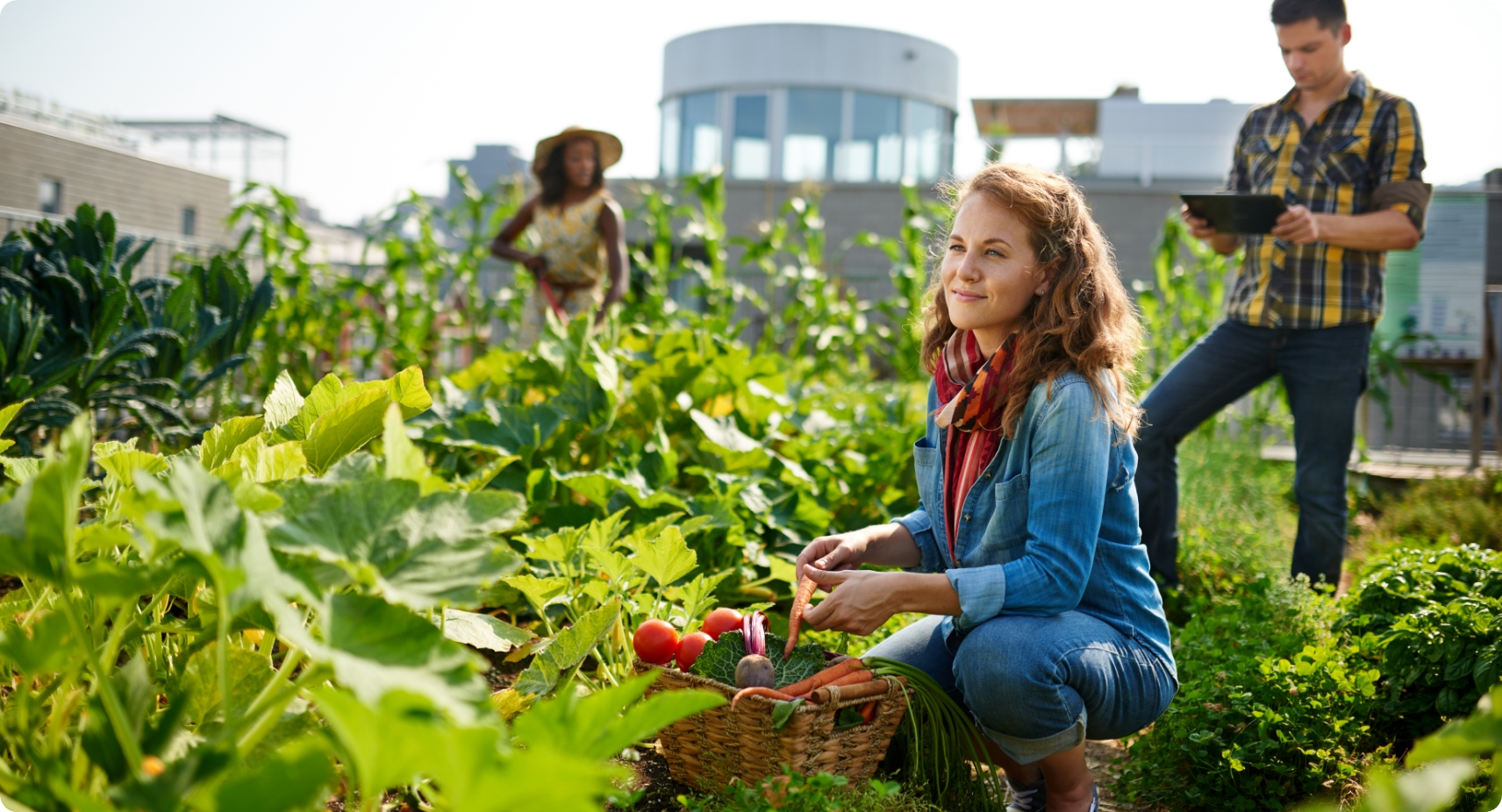
Respect the Environment
Environmental stewardship has been a part of our state’s DNA from the beginning. Our quality of life and the strength of many of the state’s key industries—including forestry, agriculture, tourism, and water sciences—depend on the quality of our environment. How can we set ourselves up for continued success?
- Responsibly manage our abundant natural resources, from caring for our waters and working to address the world’s looming water crisis to sustainable forestry practices.
- Mitigate the effects of pollution and climate change that are disproportionately impacting farmers, low-income areas, and people of color.
- Make sure all Wisconsinites have access to the outdoors.
Caring for our environment positively contributes to Wisconsin’s global leadership in key industries, makes our state an attractive place to live, and encourages us all to lead active, healthy lives.
